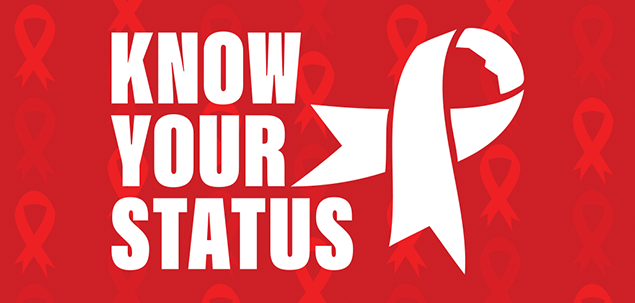
Get Tested. Know Your Status.
The first step to protecting yourself and your partners against HIV and other sexually transmitted diseases (STDs) is to get tested. You can't rely on symptoms to know whether you have HIV or STDs. You can look and feel perfectly healthy and still have HIV. Getting tested gives you the knowledge you need to protect yourself and your partners. If you learn that you have HIV, you can start treatment that will help you stay healthy, live longer, and prevent transmitting HIV to others. If you learn that you do not have HIV, you can take steps to prevent getting HIV. STDs may be treated in different ways based on the causes.

